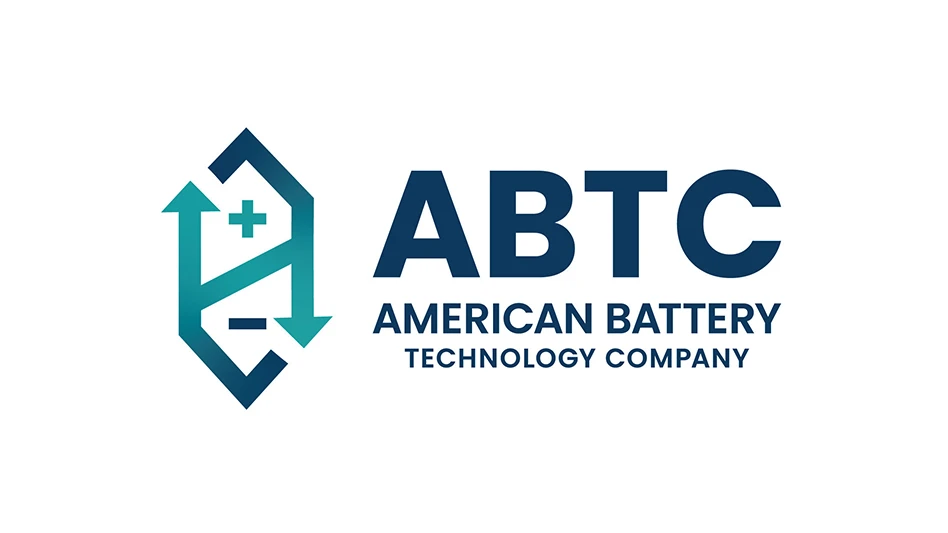The proverb tells us a journey begins with the first step…
For Tung Tai Trading Corp., the first step was taken by Joseph Chen. Joseph, who had moved from Taiwan to the U.S. in 1969, began brokering nonferrous metals to processing yards in Taiwan in 1972. However, labor costs and regulatory restrictions caused Tung Tai to enter the Chinese market in 1983.
Things at first did not go as smoothly as Tung Tai hoped for, according to John Chen, Joseph’s son and executive vice president of the Burlingame, Calif.-based company. The Tung Tai yard was the first nonferrous processing facility of its kind in China. And, the Chinese government didn’t quite know what to make of it. Consequently, it was shut down because of "regulatory problems."
"Chinese inspectors would shut down a yard out of the blue," says John. "Basically, we had to learn with who you had to talk to in China to succeed."
The learning curve was a somewhat painful one. Two of Tung Tai’s yards failed because the company didn’t understand the ins and outs of how the Chinese government conducted business and expected business to be conducted. There was also the complicating factor of China’s active black market.
A Foothold
Tung Tai did learn some painful, if not valuable, lessons and its fortunes began to change as a result. In 1989 it opened a yard in Shenzhen, just across the border from Hong Kong.
"By 1989, Chinese officials had become more familiar with the scrap business," says John. "They had learned much about the scrap business from their visits to Taiwan."
The Chinese realized, explains John, the scrap business was great for employment and for bringing in and processing the raw materials necessary to build the country’s infrastructure.
Today Tung Tai operates seven nonferrous yards in China. Tung Tai owns four of the yards and the other three are part of a joint venture with the Chinese government. The newest yard was opened this year in Nanhai, and is the largest one in the Tung Tai group.
In addition to the Shenzhen and Nanhai operations, there are yards in Dali, Ningbo, Shanghai, Tianjin and Shenyang.
"We started with less than 100 workers in the first yard," says John. "Today, we employ between 1,700 and 2,000 workers, depending on market conditions and the types of material being processed, at the seven yards."
Each yard typically has a general manager, an assistant manager, from three to five yard managers, as many as ten section chiefs and support staff. Each of the section chiefs is responsible for a particular area such as quality control, container reports, security, electronics and scales.
We Are Family
It would not be an exaggeration to say working for a scrap company in China is vastly different than working for its counterpart in the U.S. The Chinese government has expectations and requirements that must be met.
Tung Tai is required to provide housing and three meals per day for all its employees. The company also must provide health benefits to employees, voluntary overtime and cover any liability in the yard.
Most of the workers are in their 20s and 30s and are from rural areas. They move hundreds or thousands of miles to China’s East Coast – the hub of economic activity. Most laborers are men and are involved in heavy-duty work. Women are frequently involved in picking and sorting precious metals from circuit boards and electronic equipment.
Tung Tai remains very much a family business. Joseph Chen is the chairman and CEO. His two brothers, Ho and Ping, are vice chairmen. Both Ho and Ping are based in China, whereas Joseph and John call California home. Kan Ho, vice president, heads the Hong Kong office, which handles much of the company’s paperwork and finances for the China operations.
The company is also involved in joint venture with U.S. scrap yards for the local pick-up of materials.
What China Demands
Tung Tai’s operations currently process all grades of nonferrous metals. This includes almost all copper items, aluminum, brass and precious metals. But John emphasizes Tung Tai’s yards are labor-intensive businesses and they handle items often scorned by scrap operations in the U.S. This includes nonferrous shredded residue from the world’s shredders.
The largest amount of material is from electronic and computer scrap and discarded equipment. To extract metals from these sources is extremely labor intensive, explains John. Therefore, in the U.S. it is not always cost-effective. Not so in China where labor costs ($2.00 per day per worker) are significantly lower.
The type of material processed is dictated by the demands of the Chinese government. All material is dismantled as much as possible and sorted into different grades. The material is made into loose bundles or briquettes and prepared for melting.
Tung Tai’s operations are equipped with small shredders to process circuit boards. Two to three people operate these shredders. Water separation equipment is used also to process circuit boards. Strippers and chopping machines process insulated wire. Tung Tai’s yards are also equipped with the usual equipment – forklifts, skid steers, cranes and loaders – found at most scrap yards.
Finished product includes cathode and coil from copper, ingot from aluminum and rolls and plates from brass.
Containers Tell Story
A key indicator of how well Tung Tai is doing at a particular time is determined by the amount of containers the company processes. On a monthly basis Tung Tai processes 250 to 280 containers, each weighing approximately 40,000 pounds.
"We have shipped more than 300 containers recently," says John. "However the Asian crisis has dropped our numbers to approximately 180 to 200 containers each month."
John notes Tung Tai shipped less than 100 containers per month when it first started in China. In recent years Tung Tai has consistently shipped from 2,500 to 3,000 containers per year. Tung Tai uses four shipping lines based in Korea and other Asian countries.
Getting Material
Most of the material – up to 80% - comes from the U.S. Companies located mainly in the Silicon Valley, ship directly to China. Other material comes from South America, South Africa, Europe and Asia.
John logs more than 200,000 miles per year visiting suppliers and viewing materials. John and Joseph combined tally more than 300,000 miles annually.
"The best thing about this business is that it’s global," says John. "There are not too many businesses in which you can fly to a location, look up potential customers in the phone book, make some calls, meet some people and go off with hundreds of thousands of dollars in orders.
"My father used to fly to major cities in the U.S. without a map or an idea where he was going. He just knew there were scrap yards in the major cities and would sometimes take five to six buyers with him and drive from yard to yard. At each location, he would ask directions to the next location until at the end of the day, he would ask for directions back to the airport."
In addition to visiting suppliers, John attends conventions in the U.S., Europe and Asia. "These are important for meeting customers and establishing contacts," says John.
Adapting to Change
Experts may disagree on what course China will take in the years ahead, but few, if any believe the country will stay the same. Tung Tai is trying to stay ahead of the curve.
"We’re trying to pioneer the walk-in business in China," says John. "We are planning domestic yards. Material will come from domestic sources such as pick-ups, peddlers and so on."
John emphasizes Tung Tai is trying to bring Western ideas to an Eastern way of thinking. For example, Tung Tai places a high value on long-term relationships and customer service. In China, John notes, contracts can be cancelled without recourse and the legal system is not as strong as it is in the U.S. Consequently, there are those doing business in the country who are out to make a quick buck and disappear.
"Not Tung Tai," says John. "We honor our contracts and keep long-term business relationships in mind."
Maintaining Tung Tai’s solid reputation with its customers is one of the keys to the company’s success, says John. He points out there are always new players coming into the market with similar prices. To be successful, he adds, you must win the trust of customers so they will sell to you. At Tung Tai, emphasizes John, Guan Xi—the art of relationships—is imbued in its corporate philosophy.
Staying ahead of the regulatory apparatus is literally a matter of business survival in China. Tung Tai and other companies have to renew their business permits each year. "There is no such thing as business licenses with fixed time periods as exists in this country," says John. "The government looks at your record and does spot inspections. Chinese inspectors can shut you down on the spot."
Regulations, including those dealing with the environment, continue to grow tougher in China with time. "We’re trying to stay ahead," says John.
"At times it’s difficult to tell which way China is going to go environmentally," says John. "Government has to let recycling remain a viable business. You can’t regulate business so much that it can’t exist."
However, John says its Tung Tai’s corporate philosophy that the earth and its natural resources are to be treasured. He points out that Tung Tai works closely with all international, federal, state and local authorities to meet and exceed their regulations for the industry.
Extensive Training
Another innovation Tung Tai takes pride in is the extensive training program it offers its workers.
"All new employees are under direct supervision for 60 days as efficiency of the whole operation is important,’ says John. "Employee loyalty is very high and we promote from within the company. Many workers have been with the company since we opened our first yard, which is uncommon in China as people migrate to higher paying jobs quite often."
March of Technology
Technological change bodes well for Tung Tai. Of every three computers bought today, two will be thrown away in a few years, says John. In the near future the ratio will be closer to one to one. People are constantly upgrading their computer systems, John adds. "Already 286 and 386 computer systems are in the scrap stream," he says. "Eventually they will be joined by 486 systems."
John emphasizes recycling is more than just extracting metals from discarded computers and electronics equipment. Recycling keeps these materials out of landfills in first world countries. In turn, it provides raw materials to developing countries such as China. He notes as China becomes more industrialized it will generate more waste and will need an infrastructure to handle the large amount of post-consumer recycling.
What's Ahead
John Chen is bullish about Tung Tai’s future. He sees the company opening more yards in the future and would like to increase the number of containers processed to 400 containers per month. Eventually, he would like to see the company’s gross sales reach $100 million per year.
John sees the company opening more offices in Europe and the U.S. Currently, eight buying agents are handling about five to twenty containers each per month.
Tung Tai is also looking to expand further into processing ferrous metals. The company processes a few hundred tons of ferrous each month, which is sent to China’s government-owned steel mills. The company plans a possible expansion into the recycled plastics markets.
Most importantly, John wants to cultivate many more new customers. "I’m not talking about taking away someone’s customers, but new customers who have never recycled," says John. "There is still lots of ‘landfilling’ going on. When there is none, we will know we’ve done our job."
Sidebar:
Human Rights
It’s almost a given of American politics that each year Congress will debate whether or not to renew China’s most favored nation (MFN) trading status. The debate, heated at times, crosses party lines and typically bounces back and forth from Capitol Hill to the White House. The sticking point between those who favor granting MFN trading status and those that don’t invariable centers on China’s human rights record.
John Chen, executive vice president of the Tung Tai Corporation, believes that as China’s standard of living improves, so will its human rights record. "China’s human rights issues are typical of other developing countries," he says. "They are very important issues, but should not keep everything else hostage."
John emphasizes that China, with 1.2 billion people and a large military, will eventually join the U.S. as the world’s only superpowers. It is, therefore, in this nation’s best interests to engage China in a constructive fashion that mutually benefits both countries, he believes.
Get curated news on YOUR industry.
Enter your email to receive our newsletters.

Explore the December 1998 Issue
Check out more from this issue and find your next story to read.
Latest from Recycling Today
- Circular by Shapiro releases "5 for Five" sustainability series
- Graphic Packaging set to close Ohio CRB facility
- Ameripen voices support for Maryland EPR bill
- Matalco to close Canton, Ohio, plant
- Maryland county expands curbside recycling to include electronics
- California EPS ban will be enforced
- YKK AP America introduces BetterBillet
- Fresh Perspective: Cameron Keefe





